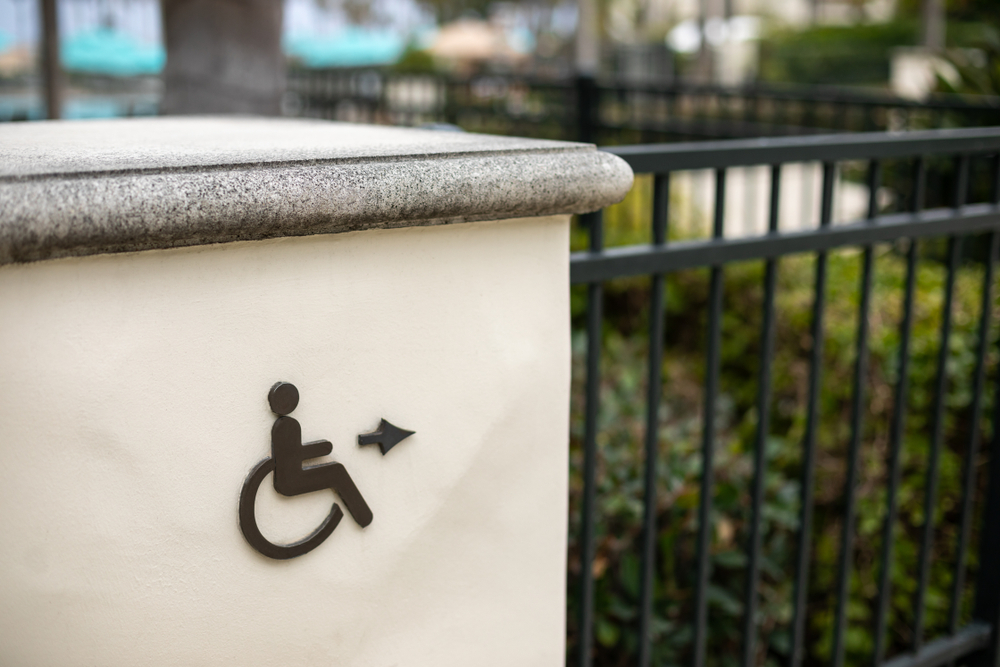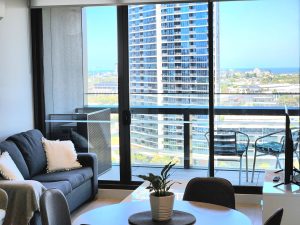What is NDIS Accommodation?

The National Disability Insurance Scheme (NDIS) is an Australian Government initiative, established in 2013, to provide funding to people with disabilities, their families, and carers.
While the Australian Government funds the scheme, it is important to note that the scheme is administered by the National Disability Insurance Agency (NDIA).
The aim of the scheme is to offer people with disabilities more choices and control over the support services they receive.
By providing individualised support packages, tailored to the needs of each participant, the lifetime approach of the scheme enables people with disabilities to participate in society and achieve their goals to their full potential.
The scheme helps people with disabilities to:
- Access mainstream services and supports, such as health and education
- Access disability-specific supports and services, such as assistive technology and personal care
- Build their skills and independence
- Participate in social and economic life
NDIS accommodation refers to housing options and support services that are available to people with disabilities under the National Disability Insurance Scheme. The aim is to provide accommodation options that are safe and suitable to the unique needs of each person with a disability.
NDIS accommodation can include a range of options, such as:
- Group homes or shared accommodation: This is where a small group of people with disabilities live together in a house or apartment. Staff support is usually provided to assist with daily living tasks, such as cooking and cleaning.
- Specialist Disability Accommodation (SDA): This type of accommodation is purpose-built for people with significant functional impairment or very high support needs. SDA includes features such as wheelchair accessibility, specialized equipment and technology, and other modifications to assist with daily living.
- Supported Independent Living (SIL): SIL provides support to people with disabilities who wish to live more independently in the community. This can include support with household tasks, personal care, and community participation.
In addition to housing options, ADIS accommodation also provides support services, such as:
- Assistance with daily living tasks: This can include personal care, such as bathing and dressing, meal preparation, and household chores.
- Access to health and medical services: This can include support to attend appointments and assistance with medication management.
- Social and recreational support: This can include assistance to participate in community activities, such as sports clubs or social groups.
What things should I look for with NDIS Accommodation?
When looking for NDIS accommodation, it is essential to understand the needs and preferences of the individual as everyone will have unique requirements. Since the support needs can vary significantly, it is important to choose NDIS accommodation that meets the specific needs of the individual.
When their individual needs and preferences are met, people with disabilities are more likely to feel comfortable, secure, and supported leading to increased independence, greater participation in social and community activities, and improved mental and physical health; all contributing to a better quality of life. By considering the individual needs, additional support services can be minimised, crises averted and costs reduced.
When choosing NDIS accommodation, there are several key factors to consider, including:
- Accessibility features: It is important to choose accommodation that is accessible for the person with a disability. This may include features such as wheelchair accessibility, accessible bathrooms, and assistive technology.
- Proximity to necessary services and amenities: It is important to choose accommodation that is close to necessary services and amenities, such as medical facilities, shops, and public transport. This can help to reduce isolation and make it easier to access essential services.
- Suitability for support staff: If support staff will be helping with daily living tasks, it is important to choose the accommodation that is suitable for them to work in. This may include features such as separate living quarters for support staff, adequate space for staff to work, and appropriate safety features.
- Compatibility with personal goals and aspirations: It is important to choose accommodation that is compatible with the individual’s personal goals and aspirations. This may include features such as opportunities for social and community participation, access to education and training, and proximity to family and friends.
- Quality of life: It is important to choose the accommodation that provides a good quality of life for the person with a disability. This may include features such as comfortable living spaces, outdoor areas, and access to recreational activities.
By working with the individual and their support network, considering the above key factors makes it possible for the disabled individual to live a fulfilling life while receiving the appropriate support and services they need.
Reviewing the support services, such as personal care, therapy, and social activities; available within NDIS accommodation is critical to ensure the individual receives the appropriate support and service to achieve their goals and aspirations. Receiving the proper support has a positive effect on:
- Quality of life: The support services available within the accommodation can significantly impact the individual’s quality of life. By reviewing the available services, it is possible to ensure that the individual has access to the appropriate level of support and services to enhance their quality of life.
- Individualised support: The NDIS recognises that people with disabilities have unique goals, aspirations, and needs. By reviewing the support services available within the accommodation, it is possible to identify the individual’s specific needs and provide personalized support that meets their unique requirements.
- Improved health outcomes: Access to support services such as therapy and personal care can help to improve health outcomes for people with disabilities. This can include improved physical health, mental health, and overall well-being.
- Social inclusion: Social activities can help to promote social inclusion and reduce isolation for people with disabilities. By reviewing the support services available within the accommodation, it is possible to ensure that the individual has access to social activities that are meaningful and aligned with their interests.

How does NDIS accommodation work?
In order to receive funding from the National Disability Insurance Scheme, you will need to go through the following process:
- Eligibility criteria:
To be eligible for the NDIS, a person must meet the following criteria:
- Have a permanent disability that significantly impacts their ability to participate in everyday activities
- Be aged between 7 and 65 years
- Be an Australian citizen, permanent resident, or hold a Protected Special Category Visa
- Live in an area where the NDIS is available
- Accessing the NDIS: To access the NDIS, a person must contact the National Disability Insurance Agency (NDIA) and request an access request form. The form will ask for information about the person’s disability, support needs, and goals and aspirations.
- Assessment: Once the access request form is submitted, the NDIA will conduct an assessment to determine the person’s eligibility for the NDIS. The assessment will involve a review of the person’s disability, functional capacity, and support needs.
- Developing a plan: If the person is found to be eligible for the NDIS, they will work with the NDIA to develop a plan that outlines their goals and aspirations and the support services they require to achieve them. The plan will be individualized and tailored to the person’s unique needs and preferences.
- Implementation: Once the plan is developed, the person can start to access the support services outlined in the plan. This may include funding for assistive technology, personal care, therapy, and other support services.
- Review: The plan will be reviewed regularly to ensure that it continues to meet the person’s changing needs and goals. The person can request a review of their plan at any time if they feel that their needs have changed.
The above process is designed to be person-centred, individualized and flexible, to ensure that people with disabilities receive the appropriate support and services they need to achieve their goals and aspirations.
When you have an individual support plan, you have the opportunity to choose your preferred accommodation option. You can start by identifying your housing needs, reviewing your support plan, researching accommodation options, visiting, and assessing potential accommodation options, and considering the support services available. By reviewing the gathered information, you can make an informed decision that would suit you best. It is important for participants to work with their support team to ensure that their chosen accommodation option meets their unique needs and preferences.
Support and Housing providers play a critical role in delivering the required services and accommodation under the NDIS.
Support providers deliver support services that are tailored to the participant’s individual needs and preferences, while housing providers provide accommodation options that meet the participant’s unique needs and preferences. Participants have the freedom to choose their preferred support providers and housing providers based on their individualized support plan to ensure that they receive the appropriate level of support and accommodations to achieve their goals and aspirations.
A service to the NDIS community that is also important is respite.
Respite is a specific support service provided to individuals with disabilities, their families, and their primary caregivers. It is a temporary or short-term option to provide relief and support to caregivers from their caregiving responsibilities.
The benefits of respite care are overwhelmingly positive, reducing stress and burnout, promoting social connections and participation as well as providing a temporary break to recharge.
The overall well-being of both the careers and the person with a disability is maintained, allowing the carers to sustain their capacity to provide care in the long term.
Respite care can take various forms, including in-home respite, where a support worker comes to the individual’s home to provide care; centre-based respite, where the person with a disability attends a facility or centre for a specific period; and residential respite, where the individual stays in a temporary residential facility.
To be eligible for respite care, the disabled individual needs to be a participant in the NDIS. The need for respite will be individually assessed, taking into account the specific needs of the individual and their primary carer, as part of the individualized planning process. Once the amount of respite required has been established within the NDIS plan, the NDIS can provide funding that can be used to engage respite service providers.
NDIS respite services play a crucial role in supporting the well-being of individuals with disabilities and their primary caregivers. By providing temporary relief from caregiving responsibilities, respite care contributes to the overall quality of life and sustainability of care arrangements.
Final Thoughts
By considering the above information, you can select the best NDIS accommodation to meet your needs, enhance comfort and convenience, optimises cost-effectiveness, ensures security, and allows you to make the most of the location during your stay.
If you are looking for conveniently located NDIS-friendly apartments in the Docklands precinct, then Melbourne Lifestyle Apartments is the perfect choice. At Melbourne Lifestyle Apartments, we provide sparkling clean and modern apartments that can be customised and have all the amenities you will need along with friendly and reliable service.
Please send your questions via the contact form for a speedy reply or give us a call today on +61 1300 992 212.

